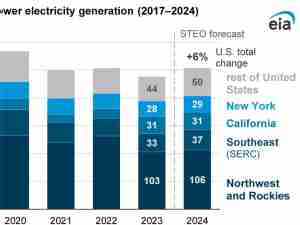Brazil’s lower house speaker Cunha charged in corruption probe
By: Reuters | Aug 20 2015 at 09:55 PM | International Trade
BRASILIA - The speaker of Brazil’s lower house of Congress was charged by prosecutors with corruption and money laundering on Thursday, becoming the first sitting politician to be charged in a burgeoning kickback and bribery scandal.
Eduardo Cunha, a member of Brazil’s largest political party, was accused of taking a $5 million bribe related to contracts for two drillships built for state-run oil company Petrobras , the focus of the country’s biggest-ever corruption scandal.
The prosecutor’s office said it also made unspecified charges against former president Fernando Collor de Mello, now a senator. His name had been on the Supreme Court’s list of dozens of people under investigation in the Petrobras scandal.
Cunha quit President Dilma Rousseff’s coalition last month to join opposition lawmakers seeking her impeachment and has obstructed Rousseff’s efforts to cut Brazil’s gaping fiscal deficit by passing more spending bills.
The corruption charges will isolate Cunha and weaken his offensive against the president, who is battling the country’s worst recession in three decades.
Police said 73,000 people had taken to the streets nationwide on Thursday in a show of support for Rousseff, though that was less than half the numbers reported in Sao Paulo and Brasilia alone who had called for her impeachment in demonstrations on Sunday.
Cunha vehemently refuted all of the charges and said in a statement that he would continue his work as house speaker.
The country’s top prosecutor filed the charges against Cunha at the Supreme Court, where he will face trial if he is indicted. Elected officials and cabinet ministers can only be tried by the highest court in Brazil.
Prosecutors did not specify the charges against Collor, who was president from 1990 to 1992, because they are based on plea bargain statements that have yet to be made public. Collor’s presidency ended when he resigned hours before his certain impeachment on corruption charges in an influence-peddling scandal. He has been a senator for his home state of Alagoas since 2007.
Collor called the charges speculative on Facebook and said prosecutors had not given him the chance to defend himself.
Police raided his Brasilia mansion in July and seized three luxury cars allegedly bought with bribe money, a Ferrari, a Porsche and a Lamborghini. Prosecutors suspect the vehicles, valued at $2 million, were bought to launder money.
In a statement outlining charges against Cunha, the prosecutors also charged ex congresswoman Solange Almeida and said they are seeking the return of $40 million in bribe money and another $40 million in damages caused to Petrobras.
RELIEF FOR ROUSSEFF
If Cunha is convicted, Congress must decide whether to strip him of his political rights and oust him as speaker, which would also remove a fierce opponent of President Rousseff, whose popularity has fallen to single digits in the midst of the corruption scandal and economic downturn.
“Rousseff has been given some respite, but we can expect some violent retribution from Cunha in the next days and weeks,” said David Fleischer, a professor of politics at the University of Brasilia.
Rousseff’s government declined to comment on the latest charges in the so-called “Car Wash” probe, named for a Brasilia gas station where some of the funds were allegedly laundered.
A group of lawmakers called for Cunha to quit as a result of the charges. Until his trial is over, the uncertainty will deepen Brazil’s political crisis, said Senator Aloysio Nunes, a leader of the main opposition party, the PSDB.
The corruption scandal centers on oil company Petroleo Brasileiro SA, as Petrobras is formally known. A defendant in the case, consultant Julio Camargo, said in plea bargain testimony that he paid Cunha the $5 million bribe.
Cunha accuses Rousseff’s government of framing him. Three dozen sitting lawmakers are under investigation in connection with allegations they received bribe money paid by engineering firms to obtain contracts with Petrobras, the country’s largest company.
Camargo and Nestor Cervero, former head of Petrobras’ international division, have been convicted of organizing bribes from South Korean shipbuilder Samsung Heavy Industries Co in exchange for contracts to build two drillships, the Petrobras 10000, which was ordered by Petrobras and Mitsui & Co in 2006, and the Vitoria 10000, ordered by Petrobras in 2007.










